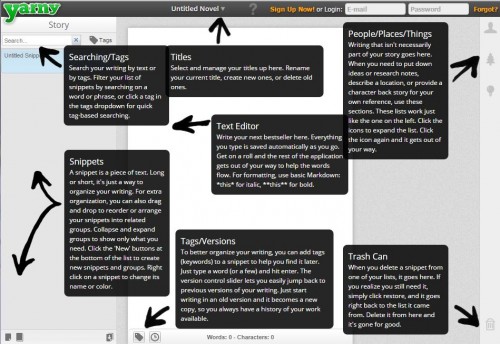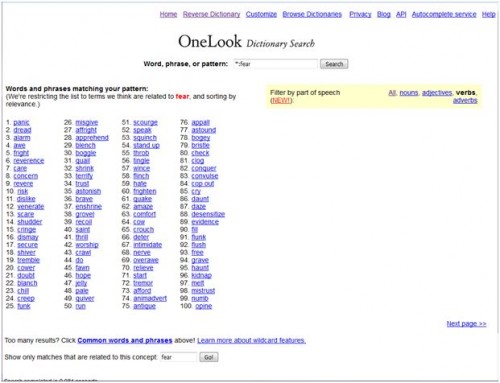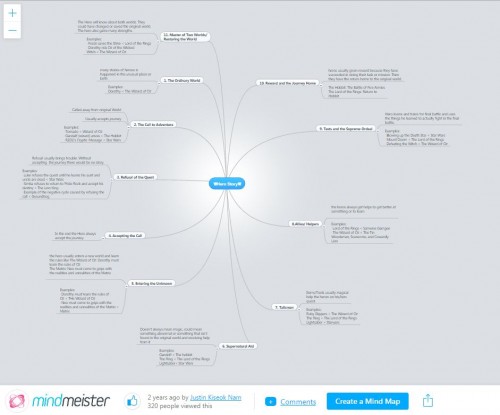I’m beyond excited for today’s guest post. I started visiting the original The Bookshelf Muse website by Angela Ackerman and Becca Puglisi soon after they started it, and it’s been fantastic to see their vision grow.
It’s no secret that I love their The Emotion Thesaurus book. I’ve talked about how the final piece I needed to push my writing to the level needed to win contests was creating an emotional connection in my stories—and it was due to what I learned from the ET that I reached that level.
Heck, I’ve written a post about all the ways the ET can help our writing. I’ve also had Becca here to share tips on how to use their followup books, The Negative Trait Thesaurus and The Positive Trait Thesaurus. Yeah, love their work…
So I’m thrilled to welcome Angela here today, as she’s going to share more writing-related goodies with us. *smile* Please welcome Angela Ackerman!
*****
What’s In Your Toolbox? Killer Resources For Writers
by Angela Ackerman
Nanowrimo is coming, and writers everywhere are turning their minds to what they should write about come November 1st. And as they plot and strategize how to get those 50,000 words, tools often come into play. Tools can be an effective way to keep ourselves organized, on task, and fueled with inspiration.
Most of us know about the biggies like Scrivener (Windows and Mac), Auto Crit and EverNote (all terrific resources, and ones you should check out!) but what about lesser known tools that really deserve a spin? Read on and maybe discover a new tool or two to add to your collection.
Yarny
If you are looking for a distraction-free setting with a clean layout for organizing your ideas and characters to access while writing the story, Yarny fits the bill. It doesn’t take long to figure out like some writing software out there, it’s easy to use, and the fact that it is cloud-based means you can write from anywhere, which we all know is helpful during NaNoWriMo season.
There’s a free version, or upgrade for access to paid features and increased functionality. You can export your work easily, backing it up on your desktop.
The OneLook Reverse Dictionary
I have been using this tool for almost as long as I’ve been a writer. This simple-looking dictionary is actually powerfully helpful when it comes to description…especially when you aren’t quite sure what it is you are trying to describe!
For example, maybe you wish to weave in a mood like unease or even fear into your story. Pop your idea into the reverse dictionary and a wealth of options comes back—things to incorporate into your scene, elements to set the mood, etc.
You can narrow the results by parts of speech, giving you ideas for strong verbs which will reinforce the message or feeling, descriptive adjectives to show rather than tell, and a host of other things. Type in a word or a phrase and see what comes out!
Jami Gold’s Worksheets for Writers
Not all powerful writing tools are their own website, and such is the case with Jami’s wonderful collection of writing worksheets. Regardless if you are an intensive planner or a semi-pantser, her worksheets are NaNoWriMo gold (sorry for the name pun, Jami, but I had to go there because your stuff is so helpful!). (Ha! And thanks! ~ Jami)
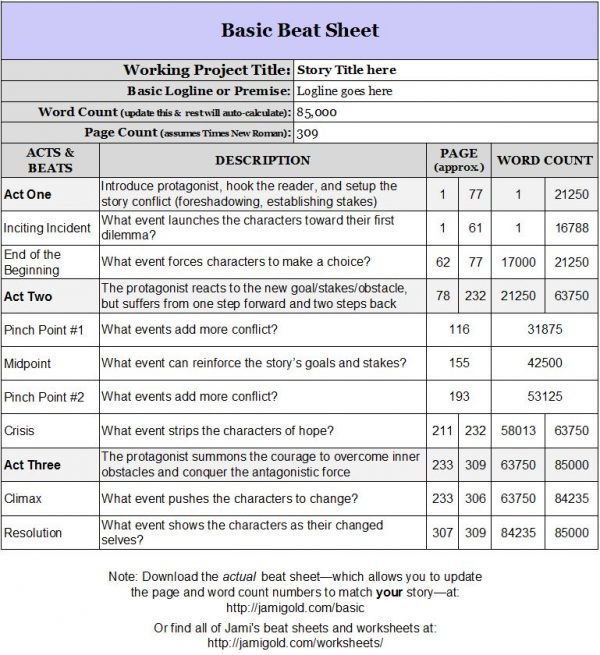
Doing some pre-planning might mean the difference between a finished NaNo novel, and one that runs out of gas at the halfway mark.
MindMeister
I don’t know about you, but often I like to visualize the story as I plan, and MindMeister makes a great visual mapping tool to organize the different pieces of a novel.
There are many ways you can use this resource to plot, show the relationship between characters, build a timeline, brainstorm conflict that occurs both within the character and through outside forces…the list is endless. You can upload images and video and embed them right in the map, which is pretty neat.
The free version allows for 3 mind maps, and the paid plans offer a lot of value. Here’s a public map that incorporates video to get an idea of what that looks like.
Freedom
This one I’ve just started using, so we will see how it goes. Freedom will block social media sites and email as you request, ensuring you can write without the constant pinging and pop-ups notifying you that someone wishes to interact online.
Social Media is a wonderful way to connect with people all over the world, but sometimes disconnecting can be a challenge. I’m hopeful Freedom will make that easier.

Freedom has a free and paid plan, and will block two sites for free for the time period you set. If your flavor of procrastination is online surfing and it’s keeping you from writing, I’m thinking a subscription will pay for itself many times over.
Additional Focusing Tools
Pomodoro Timer is something I found a few years ago, and wow does this little ticking timer keep me focused. It runs on a pattern: 25 minutes of work, followed by a 5 minute break. This is perfect to remind writers to get out of the chair, stretch, grab a snack or coffee, and then get back to it.
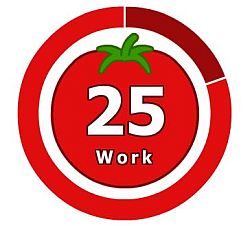
Another one I enjoy is the site, Rainy Mood. For me, the sound of rain makes some great background “white noise” that allows me to block out distractions and work.

If rain isn’t your thing, try Noisli. You can customize which nature sounds you’d like to listen to, creating a background audio blend that is uniquely you. Or, try their coffeehouse sounds to recreate a busy Starbucks-like setting.
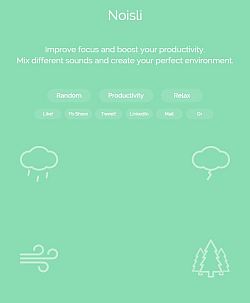
One Stop For Writers
Lastly, I’d like to introduce you to One Stop For Writers, which is a collaboration between myself, my writing partner Becca Puglisi, and Lee Powell, the creator of Scrivener for Windows. Together we’ve created an online library filled with tools to supply writers with inspiration, education and powerful description resources which will elevate their writing.
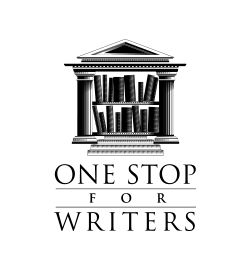
Crafting a story is hard work, and we want to help people research and find what they need faster so more of their time is spent getting words on the page.
If you’re familiar with the Thesaurus Collections at Writers Helping Writers and the bestselling resource, The Emotion Thesaurus, you have a good idea of the type of description help you’ll find at One Stop.
And if these are new to you, why not swing by and check us out? Registration is always free.
*****
 Angela Ackerman is a writing coach, international speaker and co-author of several bestselling writing books, including The Emotion Thesaurus.
Angela Ackerman is a writing coach, international speaker and co-author of several bestselling writing books, including The Emotion Thesaurus.
She loves building communities and her newest project, One Stop For Writers, is a brainstorming library tailored to help writers elevate their storytelling while saving time.
You can also find her on Twitter, Facebook and at her website, Writers Helping Writers.
*****
Thank you, Angela! I wasn’t familiar with all of these resources, so I appreciate getting the inside scoop.
I’m so excited for Angela and Becca’s new One Stop for Writers site—I can’t even tell you. My review/testimonial of the site was…erm, giddy.
“I’ve been a huge fan of the Emotion Thesaurus for years, but One Stop is the ultimate drafting assistant. Like a superhero origin story, One Stop takes the awesomeness of the Emotion Thesaurus, grafts in the other Bookshelf Muse thesaurus entries, and sprouts magic online features to create the writing equivalent of a mythical creature you can’t believe really exists. Like a rainbow-glowing unicorn…with wings.
~ Jami Gold, Author of the Mythos Legacy series”
For the last couple of years, whenever I’ve drafted, I’ve had the PDF version of the Emotion Thesaurus open on my computer. But that’s going to switch over to keeping a tab open to One Stop for Writers from now on because it’s so much more complete.
Even the Idea Generator (in The Stacks section) is addictive. Going far beyond the typical “random whatever generator,” this feature comes up with ideas for Wounds, Complications, Fears, Internal Growth, Likeable Qualities and Behaviors, Quirks, Secrets, and Story Prompts.
“For ideas on possible formative wounds, consider the possibility that your character…
- learned that the company he worked for betrayed the public’s trust.
- learned in high school that her coach received money to play certain teammates more often than others.
- discovered a sibling being abused by a beloved family member or friend.”
As Angela said, registration (and many of the features) are free, so definitely go and check it out! *smile*
What are your favorite writing tools? Were any of Angela’s suggested resources new to you? What tool do you wish existed but you haven’t been able to find yet? (Maybe another commenter will have a suggestion for you!) Do you have any questions for Angela or about One Stop for Writers?


